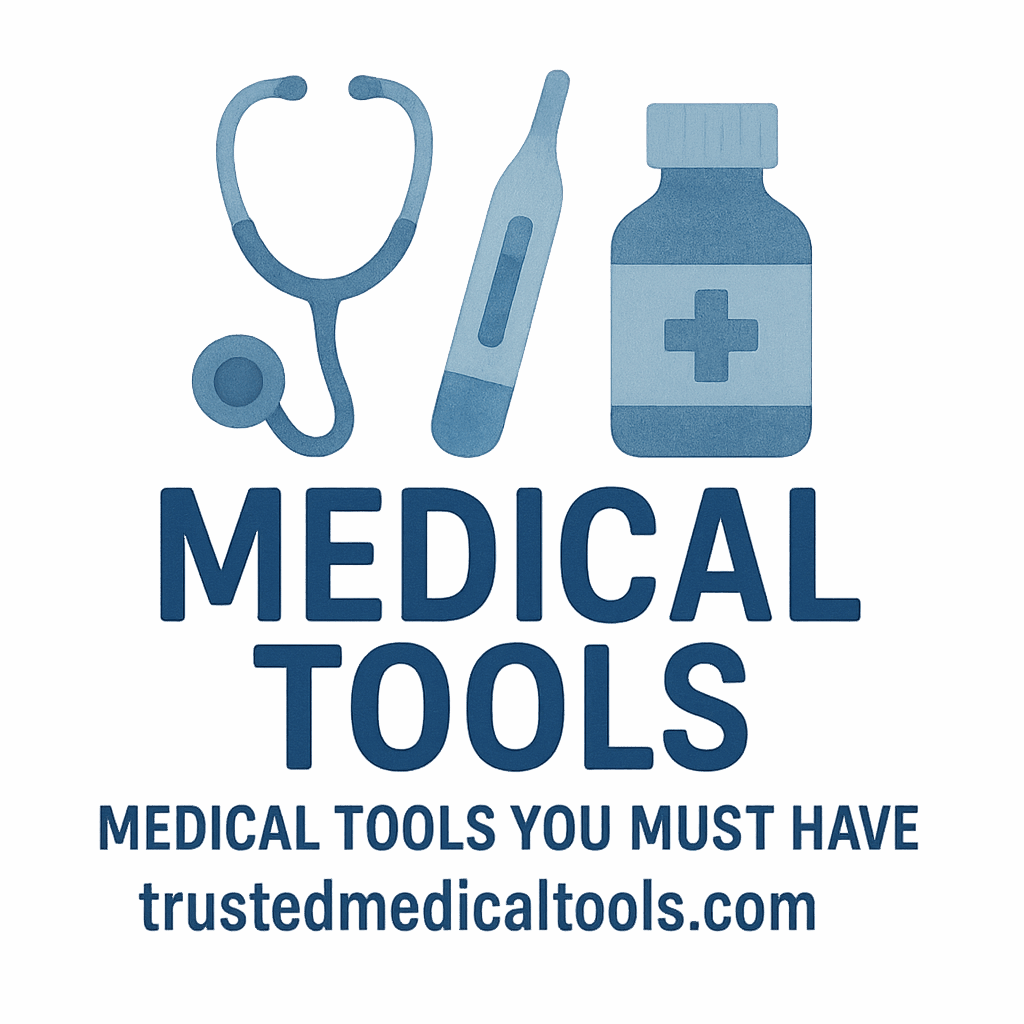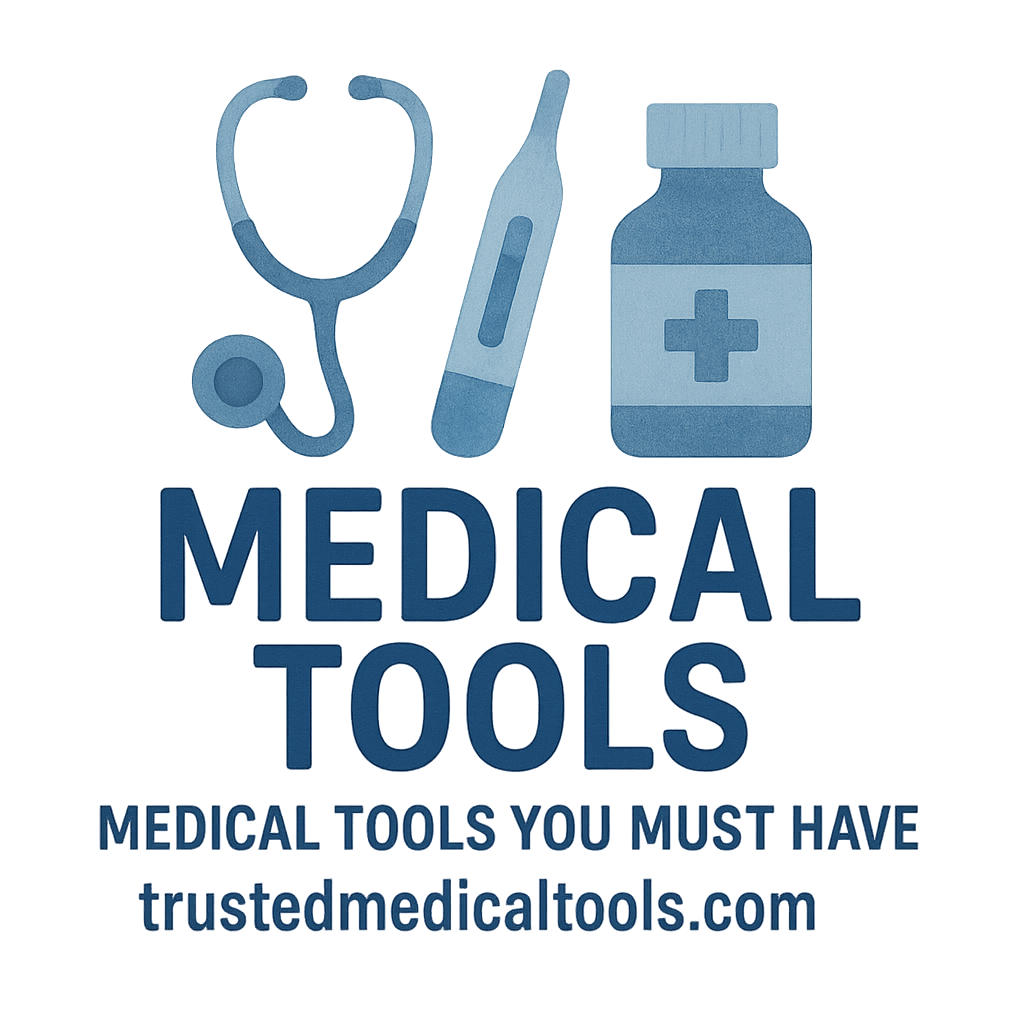Introduction
In today’s fast-paced world, staying on top of your health is more important than ever. Whether you’re managing a chronic condition, tracking recovery, or simply staying proactive about your well-being, having the right medical tools at home can make all the difference. Vital signs—such as heart rate, blood pressure, oxygen levels, and temperature—are crucial indicators of our health. Monitoring them regularly can provide early warnings of potential health issues and give you peace of mind.
In this article, we’ll explore 10 medical tools that help you monitor vital signs at home, allowing you to track your health with ease and efficiency.
What Are Vital Signs?
Vital signs are measurements that provide essential information about the functioning of your body. These indicators can reveal early signs of illness or help you monitor chronic conditions. The main vital signs that are commonly monitored include:
- Heart Rate (Pulse): The number of heartbeats per minute.
- Blood Pressure: The force of blood against the walls of your arteries.
- Oxygen Saturation: The amount of oxygen in your blood.
- Body Temperature: Your body’s core temperature.
- Respiratory Rate: The number of breaths you take per minute.
The Role of Monitoring Vital Signs at Home
Early Detection of Health Issues
Home monitoring allows you to detect changes in your vital signs before they become a serious problem. Regularly checking your blood pressure or oxygen levels can alert you to issues such as hypertension or low oxygen saturation.
Managing Chronic Conditions
For individuals with conditions like diabetes, heart disease, or asthma, having a medical tool at home to monitor vital signs is essential. It allows you to track your condition and adjust your treatment plan accordingly. Find tools that suit your home health care needs to ensure better health management.
Improving Health Outcomes
By monitoring your vital signs regularly, you can keep your healthcare provider informed about your health. This can lead to more personalized care and better management of your condition, especially when integrating devices like monitoring devices.
Medical Tools to Monitor Vital Signs at Home
Digital Thermometer
A digital thermometer is one of the most common and important tools to monitor your body temperature. Whether you’re feeling feverish or simply checking your health, a thermometer is a must-have.
Features and Benefits
- Accurate Readings: Digital thermometers provide fast, precise temperature readings.
- Versatile: Many models offer different modes for oral, underarm, or rectal readings.
Best Practices for Accurate Readings
- Clean the thermometer before and after each use.
- Avoid eating or drinking for at least 30 minutes before taking your temperature.
Blood Pressure Monitor
A blood pressure monitor helps keep track of your blood pressure readings at home, making it easier to manage hypertension or other cardiovascular conditions.
Features and Benefits
- Easy to Use: Most models are automatic and only require you to place a cuff around your arm.
- Store Readings: Some models store past readings, making it easier to track your progress.
Tips for Accurate Readings
- Sit still and relax for at least 5 minutes before taking your reading.
- Take readings at the same time each day.
Pulse Oximeter
A pulse oximeter measures the oxygen saturation in your blood, which is crucial for individuals with respiratory or heart conditions.
Features and Benefits
- Non-Invasive: Simply clip it to your finger for quick results.
- Real-Time Data: Quickly shows your oxygen levels and pulse rate.

How to Use a Pulse Oximeter Correctly
- Ensure your finger is clean and warm before using the device.
- Stay still while the device measures your oxygen levels.
Heart Rate Monitor
A heart rate monitor tracks your pulse to ensure your heart is functioning properly. It’s especially useful during exercise or for individuals with heart conditions.
Features and Benefits
- Real-Time Monitoring: Provides constant heart rate feedback.
- Wearable: Many models are designed as wristbands or chest straps.
Choosing the Right Heart Rate Monitor
Look for a model that is comfortable, easy to use, and provides real-time data.
Smart Scales
Smart scales not only track your weight but can also measure body fat, muscle mass, and even your heart rate, providing a more comprehensive view of your health.
Features and Benefits
- Multi-Function: Measures various health metrics.
- Syncs with Apps: Syncs data to mobile apps for easier tracking.
How Smart Scales Can Track Your Vital Signs
Smart scales provide insights into your overall health by measuring metrics that can indicate changes in vital signs over time. If you’re interested in exploring more wellness tools, check out some of the top home health care essentials.
Blood Glucose Monitor
For individuals with diabetes, a blood glucose monitor is a must-have tool to monitor blood sugar levels.
Features and Benefits
- Portable: Small, compact, and easy to use.
- Quick Results: Provides immediate blood glucose readings.
Importance for Diabetes Management
Consistent monitoring of blood glucose levels can help individuals with diabetes avoid complications and manage their condition effectively.
Stethoscope
A stethoscope is an essential tool for listening to the heart, lungs, and other body sounds, providing vital clues about your health. If you’re looking to expand your first aid kit at home, consider adding a stethoscope to the list.
Features and Benefits
- Professional Quality: Allows you to listen to internal body sounds.
- Portable: Lightweight and easy to carry.
How to Use a Stethoscope for Home Monitoring
To listen to heart and lung sounds, place the stethoscope’s chest piece on the chest or back and listen for any irregularities. For more first-aid essentials, visit our First Aid Buying Guide.
EKG Machine
An EKG machine measures the electrical activity of the heart. While usually found in healthcare settings, portable versions are available for home use. These machines are particularly beneficial if you’re monitoring heart health at home.
Features and Benefits
- Precise Monitoring: Provides detailed heart rhythm analysis.
- Portable: Compact models are easy to use at home.
When to Use an EKG at Home
Consider using an EKG machine if you’re experiencing irregular heartbeats or have been advised by your doctor to monitor your heart health. If you’re interested in similar health equipment, check out our Doctor-Approved Health Tools.
Respiratory Rate Monitor
A respiratory rate monitor tracks your breathing patterns, which can be crucial for those with respiratory conditions such as COPD or asthma.
Features and Benefits
- Continuous Monitoring: Tracks your respiratory rate throughout the day.
- Non-Invasive: Simply wear the device for monitoring.
Monitoring Breathing Patterns
If you notice any irregularities in your breathing, such as rapid or shallow breaths, it’s important to consult a healthcare professional. Find more safety gear and monitoring devices to support your health journey at home.
Smart Health Monitors
These smart health monitors integrate with mobile devices to provide a comprehensive overview of your health by monitoring multiple vital signs at once.
Features and Benefits
- Comprehensive Health Tracking: Monitors heart rate, blood pressure, and more.
- Syncs with Apps: Easily syncs data with health apps for detailed analysis.
Integration with Mobile Devices
Many of these monitors are compatible with smartphone apps, making it easier to track and share your data with healthcare providers. Learn more about health and wellness tools that integrate with your daily routine.
Choosing the Right Medical Tools for Home Monitoring
Factors to Consider
When selecting medical tools for home monitoring, several factors come into play:
- Accuracy and Reliability: Choose tools that provide precise and consistent readings.
- Ease of Use: Look for devices that are user-friendly, especially if you’re not familiar with medical equipment.
- Compatibility with Other Devices: Some tools integrate with other health monitoring devices or apps.
- Budget Considerations: Medical tools vary in price, so consider your budget while ensuring quality.
How to Get the Best Results from Home Monitoring
Regular Check-Ups
While home monitoring is beneficial, it’s important to have regular check-ups with your healthcare provider to ensure you’re using the right tools and monitoring your health accurately.
Consulting with Healthcare Providers
Before starting any monitoring regimen, consult with your healthcare provider to determine the best approach based on your specific health needs. Stay connected with your health providers using the tools listed on Trusted Medical Tools.
Maintaining the Equipment
Ensure that all medical tools are regularly cleaned, calibrated, and maintained to ensure they remain accurate.
Conclusion
Monitoring vital signs at home is an empowering way to take control of your health. With the right tools, you can stay on top of your health, manage chronic conditions, and detect issues early. Consider integrating devices like blood pressure monitors, smart scales, and pulse oximeters into your daily routine for effective home health monitoring.
Frequently Asked Questions (FAQs)
- What vital signs should I monitor at home?
- The most important vital signs to monitor are heart rate, blood pressure, oxygen saturation, body temperature, and respiratory rate. For more information, check out our Home Essentials.
- Can I trust home medical devices for accurate readings?
- Yes, as long as you choose high-quality, reliable devices and follow the manufacturer’s instructions carefully.
- How often should I monitor my vital signs?
- This depends on your health condition. If you have a chronic illness, daily monitoring may be recommended, while others may only need weekly checks.
- Can a blood pressure monitor replace a doctor’s visit?
- No, but it can provide valuable information between doctor visits. Always consult a healthcare professional for a comprehensive assessment.
- Do I need a prescription for these home monitoring tools?
- Most home medical devices can be purchased without a prescription, but it’s always good to consult with a doctor before use.
- Are there any risks associated with home monitoring?
- Improper use or misinterpretation of results can lead to unnecessary worry or missed health issues. Always follow instructions and consult a professional if unsure.
- How do I clean my home medical devices?
- Regularly clean your devices according to the manufacturer’s guidelines to ensure they remain in good working condition. For more tips on maintaining your health equipment, visit Medical Tools Maintenance.


